You hear her name whispered in casinos everywhere. You see her name in online casino forums across the world. You can feel her presence every time you spin a reel or flip a card or watch the ball bounce across the pockets. Lady Luck, the goddess of the gambler, the fair maiden whose favour can make or break your fortune.
Who is she? And how do we attract her to our side? Or do we actually want to?
Home » Latest news » Who is Lady Luck?
Since the earliest days of our earliest ancestors, since the times when we first started noticing the patterns in the world around us, we have been aware of some outside influence, some invisible finger on the scales of life, that may shift our fortunes suddenly and without any notice or warning.
Ever culture has a deity or a mythic figure or a ‘spirit’ who they see as the one responsible for things like sudden droughts, plagues and floods or for surprisingly bountiful harvests, victory in battle (or just surviving a battle) or having a really lucky and fortunate day.
We know her as Lady Luck but she has had many names, many genders and many followers throughout history.
Two of the most popular aspects of her personification were Tyche and Fortuna.
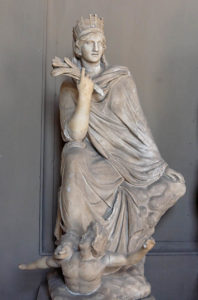
Tyche was the goddess of fortune in Greek mythology and a deity who governed the fortune and prosperity of a city. She controlled the city’s destiny and the fortunes of its people.
During the Hellenistic period, Tyche went from a single idea to a household goddess that was adapted and personalised for each city – she became each city’s personal protector and was specific to that area.
Greek culture and mythology heavily influenced the subsequent Roman mythology and many of the gods and goddesses from the Greek pantheon were absorbed into Roman life, including Tyche who became known as Fortuna.
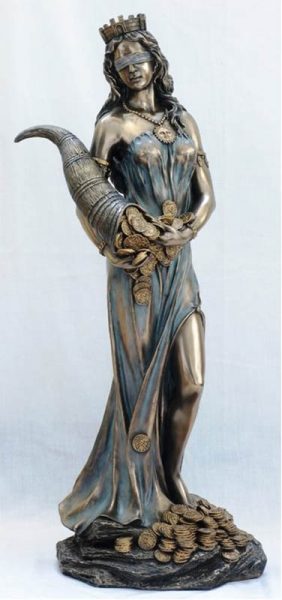
The Romans took the idea of Tyche as a goddess of fortune and turned her into the personification of luck, both good and bad.
Her popular aspect of a blindfolded woman represented the fact that she could show immense fortune – or misfortune – to anyone from a lowly peasant to the greatest Emperors. “Luck is blind” is still a common saying in modern Italy, one that goes all the way back to the Roman goddess Fortuna.
While the Greeks often had a specific Tyche for each city, the Romans went even further to try and honour Fortuna and sway her into bestowing her blessings on them. Temples, feast days, prayers and sacrifices were commonplace and they even, like the Greeks, saw specific attributes and had specific names for the types of fortune they were celebrating.
Fortuna Redux brought safety on your travels.
Fortuna Annonaria brought luck in times of harvest.
Fortuna Belli brought luck in battle.
Fortuna Victrix brought victory in battle.
Fortuna Virilis brought women luck in marriage.
Fortuna Privata looked over the luck of the individual.
Fortuna Publica looked over the luck of the people.
Fortuna Romana looked over the fortune of Rome.
And there were many more.
These two goddesses were the basis of Lady Luck, especially in ‘Western’ civilisations, but they were by no means the only symbols of good or bad fortune throughout history.
While Tyche and Fortuna were both immensely powerful and influential goddesses, they were not the only gods and goddesses worshipped for luck. In fact, the Greeks and Romans actually had gods who were dedicated to gambling amongst other holy tasks.
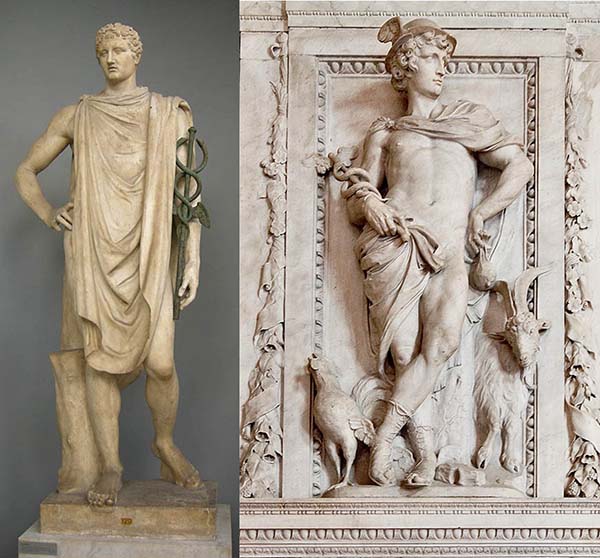
Hermes (Greek) and Mercury (Roman), also known as the Messenger of the Gods, was the god of heralds, travellers, thieves, merchants – and gamblers.
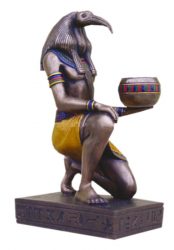
Thoth was the Egyptian god of gamblers.

Lakshmi is the Hindu goddess of wealth and fortune.
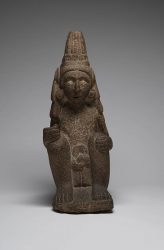
Even the ancient Aztecs had a god dedicated to looking after gamblers: Macuilxochitl.
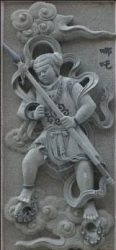
Li-Nezha was an early Chinese god of gambling.
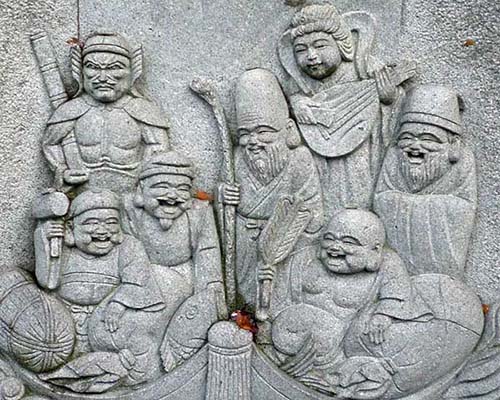
Japan has the Seven Lucky Gods (because why not have seven deities looking after your fortunes?), based on the number seven being an immensely lucky number.

There is also a saint in the Christian/Catholic church who is said to look after gamblers. Saint Cajetan (Gaetano dei Conti di Thiene) is the patron saint of gamblers and good fortune and the patron saint of Argentina. His feast day is 7 August.
And it’s not just during gambling that Lady Luck shows her face. She is the one we turn to when we need help with most of life’s difficult moments: studies, love, finances, the future. We seek her out when we are looking for someone to throw the dice our way, to maybe give a little nudge in our direction when we need a bit of divine inspiration or influence.
We can find her in literature, in music, in art, in philosophy, in every little ritual we have when we need some good fortune.
Sometimes she can be obvious like when we hit a jackpot or even a good run at the tables. Sometimes she is hidden, like when we avoid an accident because we leave home a little later than usual or find a R100 note in a pair of just-washed jeans.
But sometimes she looks the other way.
After all, luck is blind.
| Cookie | Duration | Description |
|---|---|---|
| cookielawinfo-checkbox-analytics | 11 months | This cookie is set by GDPR Cookie Consent plugin. The cookie is used to store the user consent for the cookies in the category "Analytics". |
| cookielawinfo-checkbox-functional | 11 months | The cookie is set by GDPR cookie consent to record the user consent for the cookies in the category "Functional". |
| cookielawinfo-checkbox-necessary | 11 months | This cookie is set by GDPR Cookie Consent plugin. The cookies is used to store the user consent for the cookies in the category "Necessary". |
| cookielawinfo-checkbox-others | 11 months | This cookie is set by GDPR Cookie Consent plugin. The cookie is used to store the user consent for the cookies in the category "Other. |
| cookielawinfo-checkbox-performance | 11 months | This cookie is set by GDPR Cookie Consent plugin. The cookie is used to store the user consent for the cookies in the category "Performance". |
| viewed_cookie_policy | 11 months | The cookie is set by the GDPR Cookie Consent plugin and is used to store whether or not user has consented to the use of cookies. It does not store any personal data. |